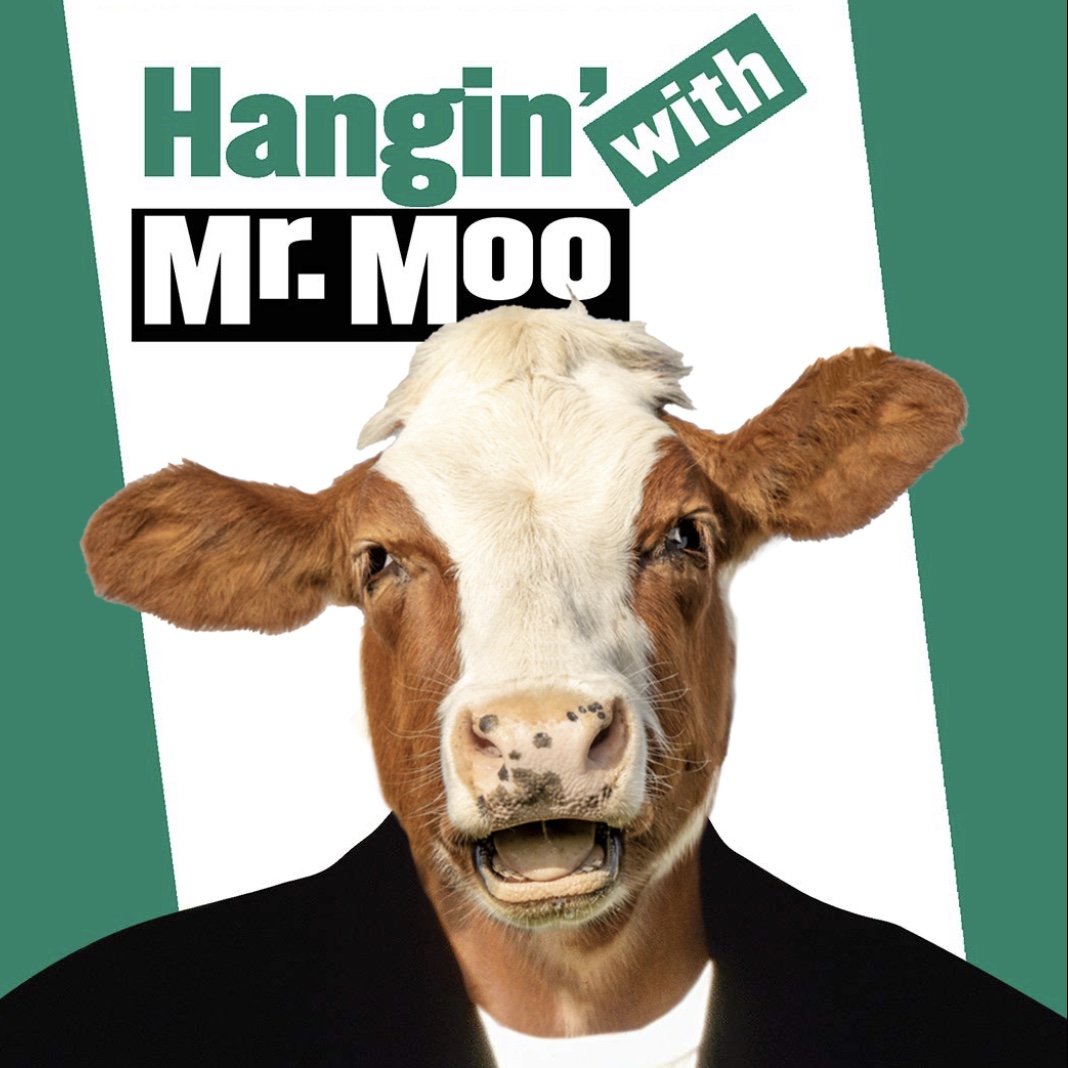YouTube disallowing adblockers, Reddit charging for API usage, Twitter blocking non-registered users. These events happen almost at the same time. Is this one of the effects of the tech bubble burst?
Short answer : Enshittification.
Long and brilliant explanation here : https://www.wired.com/story/tiktok-platforms-cory-doctorow/
This concept is also why I’m so hopeful for federated software. The federated model means that there’s no single instance that holds all the power. Many of these instances are run by admins of their own kindness and initiative. And at worst, if any instance were to start being “enshittified,” people could easily move to another instance and continue participating in the greater network.
Between all of what we’ve seen unfold in the last few months, and even weeks, on Twitter and Reddit, it’s safe to say that “enshittification” could be reaching critical mass. That’s why I came here, after all, and I’m looking forward to seeing this community simply persist here on the web.
My fear is that even if you’re correct, as the internet monoliths that have been built on the past decade fall to federated software, we will lose forever an immeasurable amount of arts and culture that has been stockpiled in these corporate spaces. Think of all the great educational YouTubers whose videos won’t be able to be passed on to whatever the next thing is if YouTube collapses.
I think I can understand your point. Large ‘“media” companies will horde the content and refuse to let it see the light of day because they believe they own it. I don’t think that’s how it would go down. Anything I’ve ever produced to be put on the web still exists somewhere on a hard drive that I control. I doubt the big name educational YouTubers are deleting the source material as soon as it goes up to YouTube.
Besides, a lot of the good ones have already moved to Nebula as well. If thought like educational YouTube you should check it out.
Educational YouTube was just an example. But there is a real danger of culturally important media being lost. See cases like the Operation Soda Steal video
Thanks for the link. That was an entertaining watch! Still, the narrator states that he is sure the original exists on a hard drive somewhere. He also gives a solution towards the end of the video. If you really like something download it.
Those folks will re-upload old content onto the new platforms. I know people don’t like to talk about money, especially in relation to the fediverse, but it’s important. If you want someone to dedicate a large portion of their energy into making high-quality content, it’s not unreasonable for them to want to make money doing it. How can we get money into the hands of content creators without allowing centralized control of the content?
Those folks will re-upload old content onto the new platforms.
Unfortunately, this isn’t likely to happen. Video files are huge (tens or hundreds of gigabytes) and many creators delete old videos once they are uploaded to Youtube so that they don’t run out of space or keep having to buy more and more drive space. Even tech YouTubers like MKBHD pull clips from their old videos directly off YouTube because they no longer have the originals (he did a podcast talking about this)
Not all of them. What about the ones who are no longer active on the platform? The ones people forgot about? The ones who have died? You think there will be 100% coverage? In the case of YouTube, many channel operators don’t actually keep a local copy of all their videos, since the files would be too big. So the only copy is the one on YouTube.
What about the ones who are no longer active on the platform? The ones people forgot about? The ones who have died? You think there will be 100% coverage?
Maybe that’s not that much of a bad thing. The day had the same length before YouTube was a thing, and people spent 100% of their time. Differently. Some things might have been pushed out of sight by YouTube, and a dying giant can create room for new things to grow.
The Library of Alexandria burning down wasn’t a good thing. Any time human knowledge that has been collected gets scattered it’s bad
I get your point, but the comparison barely holds. The Library of Alexandria had many unique works of cultural and scientific importance. YouTube is full of mundane content, mostly entertainment. Especially the scientific parts are merely re-tellings of other works which do not live on the same platform. Nobody stores their scientific findings on YouTube alone. Many creators do not upload to YouTube alone.
The more people value a specific video, the higher the chance it got copied elsewhere. So for the important parts, we probably have decent coverage.
What about all the old art and other stuff that hasn’t been kept around? They probably weren’t worth preserving through the ages, if it’s good enough we’ll see it again
Patreon?
Love this take
Original on Cory Doctorow’s own site here
Thanks dirty looking the original article, that was a great read!
Jesus. It’s articles like this that make me both be thankful for Doctorow and his ability to put tech shit in terms is non-techies can understand.
I find it fitting that an article on enshitification is so hard to read because of enshitification on the site.
Seeing boing boing articles in my Twitter feed was one of the reasons I started using it years ago. When junk started filtering in, that’s when I stopped using it. When musk started messing with politics and using Twitter to push his views, that’s when I nuked it.
That is one of the best summaries of the Internet I’ve ever read. Maybe the best. That is quite the article, thanks for sharing.
That was an excellent article. Thanks for sharing!
That was fantastic- sums up the stages pretty well
Good read. Thanks.
I’d say because it’s in the air. Obviously companies watch each other. Like the layoffs in January. The initial wave was the companies that needed to do it and had been planning it for awhile. Then when there was blood in the water everyone was doing it because then they aren’t big mean company, they are just another company doing layoffs right now. Lost in the crowd. It’s already come out some companies did it purely because big companies like Twitter and Google did it.
But we are seeing a big increase in anti-consumer moves because there seems to be no backlash. Like there’s the vocal minority, but it seems by and large a huge amount of the customers for these tech companies are unwilling to move away.
Every time Twitter does something some move off Twitter, and they get such growth! But then eventually stuff like Mastadon’s activity has a noticeable decline over time and Twitter carries on. Some people go back, some quit Twitter entirely. But these are fractions of a percentage probably. They still have the biggest celebrities and a crap ton of users.
Netflix just cracked down on password sharing, in a move that people were calling foolish. The outcry was everywhere and anytime Netflix was mentioned was 20 comments saying they cancelled that day. But subscriptions are up, Netflix won.
YouTube has been pushing more and more ads on users, there isn’t as big as a direct backlash. Like there was more outcry on removing the dislike button. Which…no one cares now lol. But YouTube pushing’s more ads, and they don’t seem to be loosing money for it. I’m sure they are trying to find the ‘breaking point’ for customers. But either people really are willing to put up with 2 30second unskippable ads every 5 minutes or premuim subscriptions are skyrocketing as they ruin the free experience.
WB killed a ton of shows outright, basically burned a bunch of media and shuttered a ton of HBO Max’s staff. People upset… Twitter all a buzz. Now it’s back to HBO is the best streaming service (Which it is lol)
Like it just keeps going. I think it’s just a combination of companies making terrible blunders steal the spotlight from each other and society as a whole has a 3 day memory. The Reddit protests are already cold news because Twitter just DDOS’d itself. People who saw all this with Reddit and call it disgusting moves by the company and the unspoken bond is broken, always end their diatribe with something like “Well I’ll just use old.Reddit with an ad blocker” like they are winning when they still provide Reddit with their usage.
People like us who walk away and move to spots like this are the minority of a minority. It’s up in the air how many will stay and how many will slowly forget their outrage at Reddit and go back.
People! What a bunch of bastards!
Thanks for putting this into words, so frustrating but true. People just can’t be assed to care if it means a mild inconvenience for themselves.
Agreed. These companies learned that internet outrage is generally indicative of nothing actionable.
As discussed here:
Honestly they do it so consistently that i’m starting to wonder if they have a choice.
A common way to do things for tech startups is that they get venture capital funds, use them to run the business at a loss hoping to acquire market dominance, and then use market dominance to turn a profit. I think a lot of tech startups that we know are currently in phase 2, meaning they’ve thrown money out the window for years and are now trying to recoup their investments.
Also, Reddit wants to go public and Twitter already is. This is relevant because investors are animals, all they see is short-term profit, and they use their voting power to make the company behave that way.
There’s a common thread between both my theories: it’s shareholder capitalism. I say this as a lifelong shareholder myself, shareholders ruin everything.
Great point that shareholders ruin everything. I invest but I’ll avoid certain companies or industries that don’t align with my values, even if those stocks have the most potential profitability. But this seems to be a very uncommon habit in the investing world.
Tech companies were only favorable to their users during the corporate Web 2.0 genesis when these companies had to lure educated users in with extremely convenient free services, but they always did and continue to do so under terms of service that are intentionally made as hard to read walls of legalese bullshit, so they always click accept and hand them power by moving there.
These companies usually are either publicly traded or aspire to be publicly traded, and are backed by venture capital loaned to them by banks and investors.
Then during the late 2000s and early 2010s these corporations gobbled up web traffic by having all the valuable information and communities behind their walls. This drove their operating costs up a lot but it was no problem, since the zero interest rate policy was in effect so these now-megacorps had basically interest-free loans to get infinite money to finance the platform. However they realized around the mid 2010s that they controlled the vast majority of the web so they realized they could be as greedy as they wanted since no one is going to ever step up to them (YouTube is a shining example of this) and ever since the mid-late 2010s they started nerfing and crippling the user experience in order to please their investors and ad networks. This process was extremely slow initially to minimize the backlash. They applied the boiling frog strategy and it worked.
By the early 2020s this was in full effect: websites do not respect your privacy and try to shove trackers and ads whenever and wherever they legally can, search engines are manipulated to put sponsored and SEO spam links first rather than useful answers, sites are implementing login walls to make sure the valuable content they hold hostage can only be accessed once they have the data of users, discourse is being controlled and micromanaged by corporations with automated censorship, mystery echo chamber algorithms, shadowbans and wordlists, news sites have article limits and paywalls now. It got so bad that it’s already harming society as a whole because it’s causing polarization and these platforms now have enough power to theoretically manipulate elections in some really bad cases.
This is a process known as enshittification: start great then become shit and die. Now that the zero interest rate policy is over, and interest rates started climbing up it means silicon valley free money is over so they can no longer afford to be boiling frogs, they are turning up the heat to 11 and just roasting the frog alive. In other words, the enshittification cycle is becoming exponentially faster and it’s only going to get worse for the corporate web and its users. The only solution is returning to decentralized technologies like Web 1.0 used to be, but it’s extremely hard since free as in you pay with your data services are addictive like crack cocaine.
I am starting to miss the echo chamber of YouTube. I am a fairly leftwing atheist in a solid blue state that ranks near last in religious observance. And yet roughly a quarter of the suggested videos/ads I get are for things like Epoch Times, Prager U, HeGetsUs, PJ Media.
Alright so the only way I am clicking on that stuff is by accident. From the advertisement point of view this is worse than selling iceboxes to Inuit, this is like trying to sell ribeye steaks to vegans with no money.
Which makes you wonder what the future holds. Say you are Epoch Times and you find out the YouTube is pushing your product on people who actively don’t want to buy it how much longer are you going to pay Alphabet for a failed advertising campaign?
There’s also a political agenda at play. The Wall Street madman caste finds left wing popular movements to be obnoxious, as they undermine their business model and cost them money.
Note how Reddit’s admins would turn a blind eye to Nazi subreddits and shit like r/The_Donald for years, until the entire planet screamed at Reddit to exercise some basic asshole control.
But when people started talking about punching Nazis, the banhammer came out immediately. Gotta love Reddit’s totally unbiased policies…
When left wing groups get big enough to get things done, Wall Street pulls strings and then you see bans, shadowbans, biased policies & enforcement against activist groups and marginalized groups (LGBT groups getting NSFW’d out of existence), trolling & astroturfing campaigns, mass propaganda, abuse of user data (Cambridge Analytica), ratting activists out to authoritarian governments, nerfing community moderation and letting Nazis go to town while yawning when users complain, while at the same time, anyone left-wing gets instabanned for jaywalking…
It’s either that, or these specific groups are opening up their parameters and trying to reach/convert outside their base. Which sounds about right for religious groups.
Most of the aspects have already been covered but I would want to add one:
This was always the plan, it just wasn’t as highly prioritised as growth.
I work as a developer at a big tech company. We (the company) had our roadmap and it was mostly about getting more users. The more users you have the day the economy turns - the better off you are (… If you manage to turn an profit).
So when the economy went to shit and we (and other tech companies) no longer can loan money for free to cover our running expenses - the priorities shift. Working towards attracting more users is only going to increase your costs at the point and you don’t want to run out of money. So all roadmaps changed and cost saving efforts became the highest prio all of the sudden.
Gain a monopoly, get users addicted and reliant, then change the rules of the game and hope they stick with you. It’s happening now because of the economy for sure, but it’s not like it’s surprising.
This was always the plan, to put a world in your hand…
It’s the end of cheap credit.
https://fred.stlouisfed.org/graph/fredgraph.png?g=16J5X
That graph shows the Federal Funds Effective Rate. Until recently, VCs could borrow money while effectively paying zero interest. That meant their investments weren’t under any pressure to become profitable any time soon. Now, borrowing is expensive. VCs don’t want to loan any more money, and want their investments to pay off. Reddit and other pre-IPO companies are scrambling to become profitable.
I assume the big companies like YouTube / Google going against people blocking ads are just taking advantage of the chaos.
As for Twitter: Elon Musk is an idiot.
You forgot one thing. Fuck /u/spez
Ads pay basically nothing now and VC funding has dried up. Most of these tech companies operated at a loss and are now being pressured into becoming profitable since investors don’t want to throw money at them anymore.
Data privacy laws have also gotten better, cutting off another revenue stream that was typically used.
Interest rates def have a factor in this also
But when did VC money get flushed in? I doubt that it just somehow stops out of nowhere. I mean all these companies weren’t exactly founded at the same time.
During the pandemic VC slowed to a crawl and the stock market went to shit. While the market eventually rebounded VC is doing so MUCH more slowly. VC scum doesn’t care about innovation, it cares about making money. If there’s some level of risk it shrinks like balls in a January pool and it takes forever to coax the little guys out.
Capitalism.
Capitalism is like cutting off your wings because you believe the reduced weight will make you fly higher.
It’s shocking how accurate at how the oblivious and infuriating it is.
deleted by creator
This is the only response required. I’m quickly becoming exhausted of reading everyone’s epiphany on “enshittification” as if it’s some natural eventuality. Yes the money must eventually come, but not always at the expense of platform quality. If anything the results we see from “enshittification” are due to the fact that most businesses fail eventually due to poor leadership.
Just to echo what you have already said, money today is simply more expensive than it used to be. We even see the impacts of macro monetary decisions on households.
Buying a house or a car on loan is far more expensive than it would have been a year and half ago. A $500,000 house in 2021 would cost $2,000 a month at 2.75% interest and 20% down. Today same that payment is $2,800 or 40% more expensive at 7.75% interest.
Modern companies live on revolving debt, so if their suddenly gets 40% more expensive and that same amount of money is also less valuable at the same time (inflation), then they need to make up the difference somehow.
Corporations are trying to find the balance between squeezing more revenue to pay their ever increasing debt bills while also not destroying the environment that attracted the users (their products) in the first place. Twitter and Reddit are just going about it horrifically because of poor business leadership and decision making. Netflix’s approach appears to be sustainable, and there is no doubt that YouTube will be fine in the long run.
This is not meant to be apologetic to the decisions made by Twitter and Reddit. They’ve made their bed through their own horrible decisions, and now they’ve got to sleep in it.
I remember a video, I think from ColdFusion, explaining how the economy has been working on debt on top of debt since the 2008 crisis. The whole idea of “grow first, profit
neverlater” is only possible thanks to endlessly rolling debts. A bubble begging to burstAnd the irony is that the same motherfuckers responsible for that problem will be responsible for this next one AND they’ll still stay rich, while we slave away having to deal with “economists” complaining that we want to own houses.
Buying a house or a car on loan is far more expensive than it would have been a year and half ago. A $500,000 house in 2021 would cost $2,000 a month at 2.75% interest and 20% down. Today same that payment is $2,800 or 40% more expensive at 7.75% interest.
Note that mortgages are not what companies pay for loans.
https://fred.stlouisfed.org/series/BAMLH0A3HYCEY
CCC bonds yield is the “low-quality” bond market, and is closer to what you might expect a no-profit internet company to be borrowing money at. 2021 was 6%ish interest rates, but today is ~12%+.
But 2016 was ~18%+ rates, its much more volatile than the mortgage market.
You are absolutely correct! I just couldn’t think of a way to further dive into that nuance, but I also wanted the example to be relatable and tangible. Thank you!
Couple this with the idea that Elon is proving you can do something drastically unpopular to increase profit, and most users still won’t abandon the platform. Tech companies, traditionally, move quickly off of FOMO to make a profit. Elon has brazenly validated many choices that other companies have generally considered risky up until his point.
I would expect this to get even worse now that spez has doubled down. Many people talk about how Elon and spez are ruining their platforms, but at least for now, they have seemingly gotten away with it. Some users have migrated to other platforms, but many have stuck around.
Very interesting, thanks!
Any chance you know of any papers, ideally academic, that go into this, for further reading?
deleted by creator
Part of it is the standard crisis of capitalism, the profit you get from doing the same thing always declines, so over time you have to push up revenue (increasing prices, forcing people to pay, showing more ads, gathering more data, etc) & push down costs (fire engineers, run on less hardware, etc)
Part of it is capitalisms natural tendency to create monopolies, and the lack of competition in a given field causing the company to then lose sight of what it’s good at to compete in a bigger field.
Part is that interest rates mean loans are no longer cheap, so taking on debt to get customer, to at some point down the line make money, is a less viable plan. Twitter is a special case where the bad loans are because that was the original deal not interested rate related, and Musk is trying to pull all of the enshitification levers at the same time.
Part is that CEOs generally don’t have a fucking clue about their products or what they are doing (it’s a circuit job about who you know/blow, not what you know), so once one CEO starts firing/enshitifying, the rest just copy them so as to not be left out.
I wouldn’t blame them being pure greed on capitalism honestly.
Capitalism is a system built on greed as a foundation to function. In a capitalist system, you must always continue to grow, expand, engulf, absorb, and acquire. This is why it is such a toxic and destructive system. Capitalism will always incentivize companies to get the most people possible to spend as much as possible on as little as possible, that’s literally the core principle of maximizing profitability.
It’s why enshittification keeps happening, the system isn’t broken, it’s working exactly how it’s supposed to.
Wouldn’t capitalism be relatively fine without the function of the Stock Exchange? I feel like the stock Exchange is what causes the issue with the need for continual growth. I feel like capitalism without the overarching need to continuously grow due to the demands of the stock exchange system, could work perfectly fine as you wouldn’t need to continuously grow but to maintain a profit and adjust for inflation where needed.
Capitalism codifies the acquisition and control of capital by an owning class separate from the workers (employees). The owners always want to see their profits grow, because in a system that is zero sum, where competition is glorified as the primary mechanism for fair pricing and business success, if you aren’t growing, then other competitors will eventually extinguish you.
Capitalism mimics evolution in that way, where all organisms compete against each other in a winner-takes-all setting. Talk to any hardcore Capitalist and they will talk about Capitalism being the “natural order”, “human nature” etc. I know, I used to be a hardcore free market capitalist.
A system that places profit and private ownership of capital above all else will always result in the kinds of oppressive systems and company practices we see today.
It’s like how fundamentalist religious institutions are having abuse scandals over and over for literal centuries. They are built in such a way that makes abuse easy to get away with. Even if it starts out perfectly clean, safe, and incorrupt, eventually the very structure of the organization itself will cause abusers to join or allow already abusive people to commit those acts without significant consequences. It is a negative feedback loop that perpetuates itself until it collapses totally or is extinguished by an outside force.
It’s not pure greed though, if companies do not push down costs & push up revenues enough, they get replaced by those that do.
It is capitalism doing what it does “best”, here’s a clip from I’m A Virgo that explains it better than me: https://youtu.be/lpagmvYZKRc?t=84
There are niches where companies can hide out for a while, especially if they provide a service that needs local implementation, but social media isn’t one of those niches, if you get outcompeted, your toast, no matter how big you peak, MySpace, Tumbler, Digg, Slashdot, etc, this is the monopolization effect of markets.
It’s simple, despite what big tech companies are telling themselves, current algorithm for personalized online ads doesn’t actually work, because you can’t force people to be interested something just by shoving media in front of them.
Instead of realizing that people want genuine human engagement to tell them HOW your product can help solve their problems, we are at the phase where tech companies double down on their incorrect assumption and thinks to make people want things, they just need to shove more things people don’t want to see in front of them.
I’d say synchronous targeted ads work very well. I.e. showing me ads when I am searching for something explicitly on Google or Amazon. Asynchronous targeted ads - yeah, less so.
It’s so common there’s even a term for it now, “enshittification”
To quote the article that describes it:
“Here is how platforms die: First, they are good to their users; then they abuse their users to make things better for their business customers; finally, they abuse those business customers to claw back all the value for themselves. Then, they die.”
Source: https://www.wired.com/story/tiktok-platforms-cory-doctorow/ The source is about TikTok but the author has gone on to describe how this applies to basically every modern tech company in various interviews.
A lot of the 2010’s tech was fueled by venture capitalists looking for the next big thing. They saw things that were extremely popular, like Facebook, Reddit, YouTube, etc, and figured “well we’ve got a ton of users, surely we can find a way to make money off of this.”
Some investors are starting to realize they aren’t actually making much money or costs are blowing up without revenue following. People are starting to back out of this bubble without clear goals towards profitability.
Yeah it’s mostly investment people that have a lot of money and are basically the ones pulling the strings. Because if they don’t like you then the value of your company goes down and poof you were deeply s***
i hope that the internet becomes sort of how it used to be, made by the people for the people and ran by the people instead of made by a few huge corporations that sell our data and constantly try and squeeze profit out of their platforms. i love the sense of community in decentralised social media and there seems to be next to no arguments most places. im really enjoying everything so far after joining
Me too. I feel much calmer scrolling through Lemmy as opposed to Reddit or Twitter. I have way less of an urge to troll over here.
Same. Well I didn’t necessarily troll reddit, but I also had no problem telling bigots where to go or what to suck. Less people to yell at on this platform lol
Interest rates go up > VCs can’t barrow free money and demand a return on investment > companies try to demonstrate profitability > enshitification

















